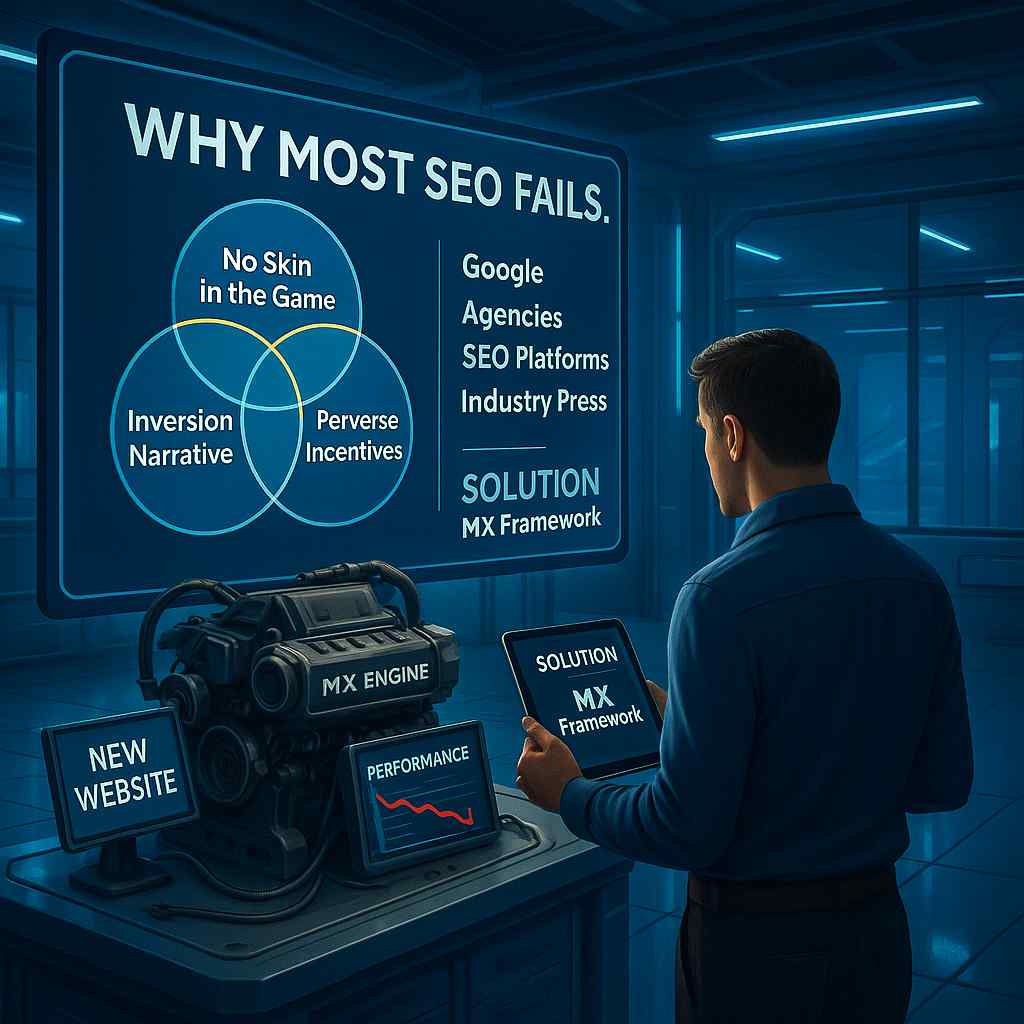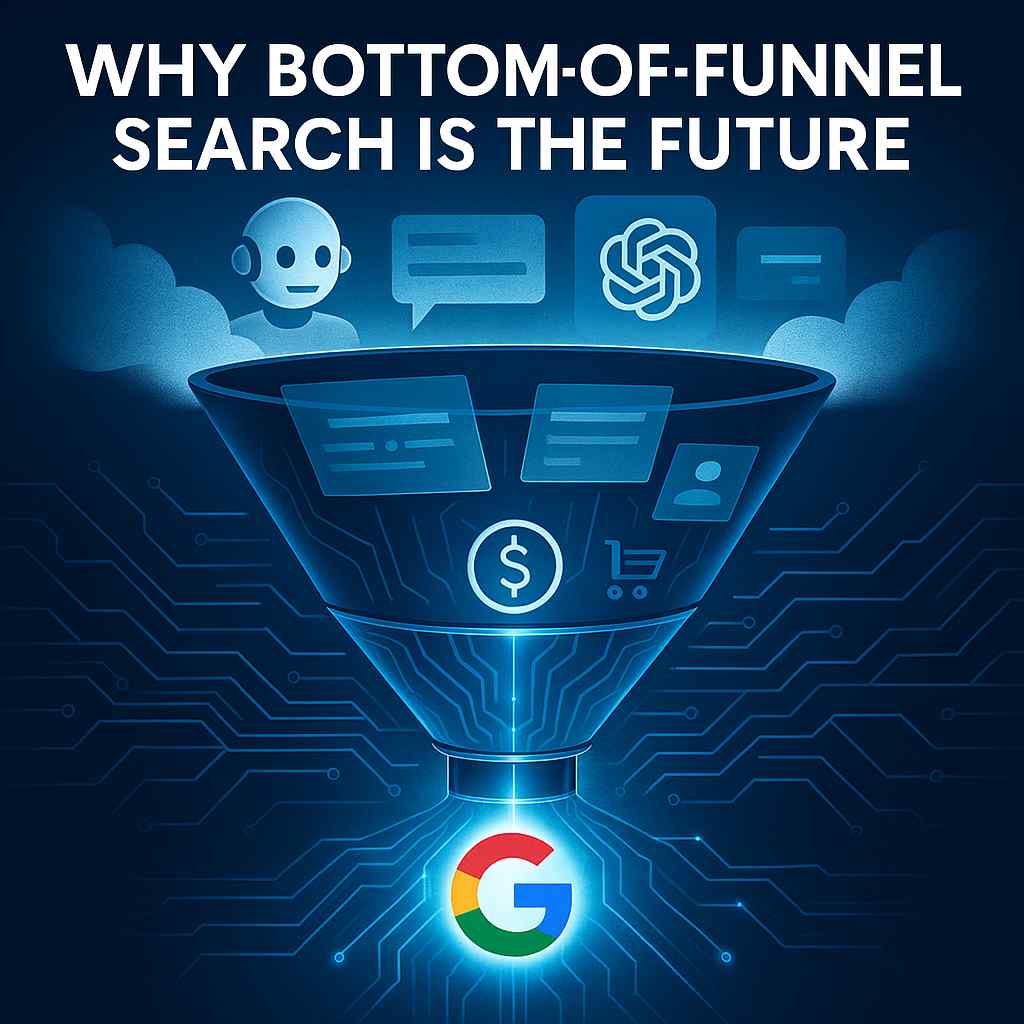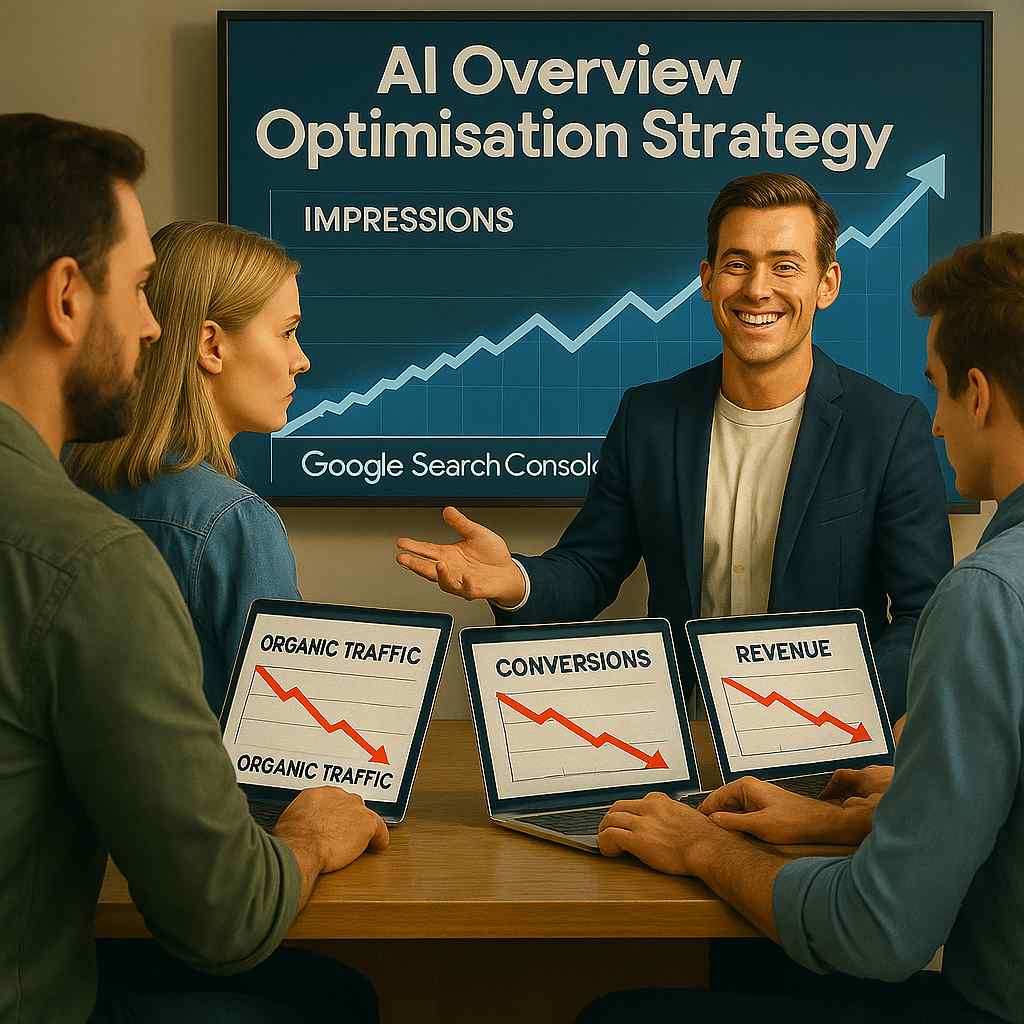I used to see it over and over. A company would come to the agency I worked at, often months after launching a shiny new website. The brief was always the same: “We’ve just rebuilt the site – now we need you to do some SEO on it.” They thought SEO was a layer you
Google is the most influential search engine in the world, setting the standard for online search and digital advertising. In this section we’ll delve into the latest updates, features, and strategies related to Google’s vast ecosystem, and learn how to harness its power for your business.
Google Launches AI Mode in the UK – What It Means for SEO
Google has quietly rolled out a new search feature in the UK: AI Mode. It appears as a tab to the left of the familiar “All” tab – subtle, but deliberately placed to catch the eye. While “All” shows the classic SERP (ads, blue links, maps), AI Mode surfaces an AI‑generated overview with three supporting
LLMs Don’t Replace Rankings – They Rely on Them
Everyone’s talking about how AI is changing search, but what most people haven’t clocked is that GPT doesn’t replace traditional search infrastructure – it relies on it. That has huge implications for how we think about SEO, visibility, and the durability of existing systems. Why GPT’s Use of Search Engines Reinforces – Not Replaces –
The Evolution of SEO: Why Bottom-of-Funnel Search is the Future
For over a decade, SEO has revolved around two mantras: ‘Build great content’ and ‘optimise for the user’. Post-Panda, thin and duplicate content became liabilities. Post-Penguin, content turned into a vehicle for attracting links – under the pretence it was all for the user’s benefit. Then came EEAT, further reinforcing the idea that more content
Sovereign SEO: A First-Principles Approach to Organic Search
Sovereign SEO is a strategy of control. It’s about building systems that allocate authority like capital, protect upside, and compound returns over time – regardless of what Google or the industry narrative says. The Inversion Narrative Most people don’t realise they’re playing against a propaganda machine. The rules of SEO haven’t just changed – they’ve
The Real AI SEO Shift: It’s Not What You’re Being Sold
Every few years, someone declares SEO dead. It’s a familiar pattern by now: new technology emerges, fear kicks in, and someone shows up with a sweeping, oversimplified solution. This time, the scapegoat is AI Overviews (soon to be ‘AI mode’) – Google’s latest UI feature that summarises information at the top of the search results.
Google Is Shutting Down ccTLDs – Here’s What That Really Means for SEO, Clients, and the Future of Rank Tracking
On April 15th 2025 Google announced (in a recent blog post on Google’s official blog, “The Keyword,” – https://blog.google/products/search/country-code-top-level-domains) that it will begin redirecting users from its country-specific domains such as google.co.uk, google.com.au, and google.ca to a single global domain: google.com. The change, aimed at “streamlining the user experience”, will be rolled out gradually over
Machine Experience (MX) and PPC: Optimising Dynamic Search Ads and Smart Bidding
Machine Experience (MX) is becoming increasingly relevant to how Pay-Per-Click (PPC) campaigns operate, particularly since the advent of dynamic ad formats and automated bidding. This article expands on the concepts discussed in the preceding posts of the MX series, providing a deep dive into the intricacies of Machine Experience MX within the context of PPC
Machine Experience (MX) Engines: SEO Capital Allocation Explained
In a previous article, Machine Experience (MX): The Hidden Practice That Powers Search Performance, I outlined how Machine Experience (MX) spans the full spectrum of how machines interpret and prioritise websites – across both SEO and paid media. In SEO specifically, that spectrum breaks into three key areas: Within that broader field, MX Engines represent
Machine Experience (MX): The Hidden Practice That Powers Search Performance
Despite its impact, Machine Experience remains a blind spot for most teams. It’s rarely owned, often misunderstood, and typically dismissed as “just technical SEO.” While UX has matured into a discipline with defined ownership and clear processes, MX has been left behind – quietly (yet significantly) undermining performance in ways most teams never trace back









